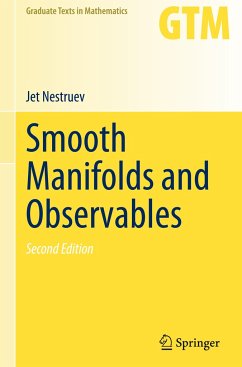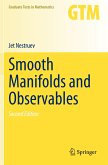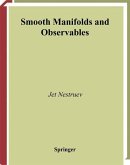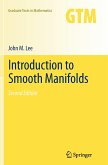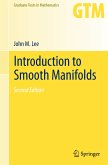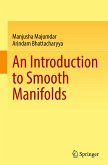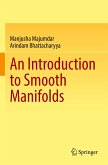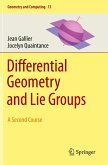This textbook demonstrates how differential calculus, smooth manifolds, and commutative algebra constitute a unified whole, despite having arisen at different times and under different circumstances. Motivating this synthesis is the mathematical formalization of the process of observation from classical physics. A broad audience will appreciate this unique approach for the insight it gives into the underlying connections between geometry, physics, and commutative algebra.
The main objective of this book is to explain how differential calculus is a natural part of commutative algebra. This is achieved by studying the corresponding algebras of smooth functions that result in a general construction of the differential calculus on various categories of modules over the given commutative algebra. It is shown in detail that the ordinary differential calculus and differential geometry on smooth manifolds turns out to be precisely the particular case that corresponds to the category of geometric modules over smooth algebras. This approach opens the way to numerous applications, ranging from delicate questions of algebraic geometry to the theory of elementary particles.
Smooth Manifolds and Observables is intended for advanced undergraduates, graduate students, and researchers in mathematics and physics. This second edition adds ten new chapters to further develop the notion of differential calculus over commutative algebras, showing it to be a generalization of the differential calculus on smooth manifolds. Applications to diverse areas, such as symplectic manifolds, de Rham cohomology, and Poisson brackets are explored. Additional examples of the basic functors of the theory are presented alongside numerous new exercises, providing readers with many more opportunities to practice these concepts.
The main objective of this book is to explain how differential calculus is a natural part of commutative algebra. This is achieved by studying the corresponding algebras of smooth functions that result in a general construction of the differential calculus on various categories of modules over the given commutative algebra. It is shown in detail that the ordinary differential calculus and differential geometry on smooth manifolds turns out to be precisely the particular case that corresponds to the category of geometric modules over smooth algebras. This approach opens the way to numerous applications, ranging from delicate questions of algebraic geometry to the theory of elementary particles.
Smooth Manifolds and Observables is intended for advanced undergraduates, graduate students, and researchers in mathematics and physics. This second edition adds ten new chapters to further develop the notion of differential calculus over commutative algebras, showing it to be a generalization of the differential calculus on smooth manifolds. Applications to diverse areas, such as symplectic manifolds, de Rham cohomology, and Poisson brackets are explored. Additional examples of the basic functors of the theory are presented alongside numerous new exercises, providing readers with many more opportunities to practice these concepts.
From the reviews:
"Main themes of the book are manifolds, fibre bundles and differential operators acting on sections of vector bundles. ... A classical treatment of these topics starts with a coordinate description of a manifold M ... . The present book is based on an alternative point of view, where calculus on manifolds is treated as a part of commutative algebra. ... The book contains quite a few exercises and many useful illustrations." (EMS, September, 2004)
"The book provides a self-contained introduction to the theory of smooth manifolds and fibre bundles, oriented towards graduate students in mathematics and physics. The approach followed here, however, substantially differs from most textbooks on manifold theory. ... This book is certainly quite interesting and may appeal even to people who merely want to study algebraic geometry, in the sense that they will gain extra insight here by the attention which is paid to making certain constructions in algebraic geometry physically or intuitively acceptable." (Willy Sarlet, Zentralblatt MATH, Vol. 1021, 2003)
"Main themes of the book are manifolds, fibre bundles and differential operators acting on sections of vector bundles. ... A classical treatment of these topics starts with a coordinate description of a manifold M ... . The present book is based on an alternative point of view, where calculus on manifolds is treated as a part of commutative algebra. ... The book contains quite a few exercises and many useful illustrations." (EMS, September, 2004)
"The book provides a self-contained introduction to the theory of smooth manifolds and fibre bundles, oriented towards graduate students in mathematics and physics. The approach followed here, however, substantially differs from most textbooks on manifold theory. ... This book is certainly quite interesting and may appeal even to people who merely want to study algebraic geometry, in the sense that they will gain extra insight here by the attention which is paid to making certain constructions in algebraic geometry physically or intuitively acceptable." (Willy Sarlet, Zentralblatt MATH, Vol. 1021, 2003)

